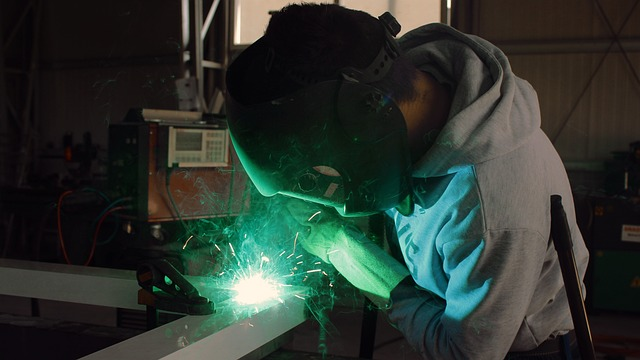What is Manufacturing Factoring?
Manufacturing factoring is the process of selling unpaid invoices to a third-party company (the factor) for an immediate cash advance based on the invoice value. It’s a form of accounts receivable financing, also called invoice factoring or accounts receivable factoring. Businesses pay a small factoring fee for the service.
The factoring process for manufacturing firms involves submitting invoices to the factor, verifying the invoices, and receiving payment promptly, which helps bridge the gap between invoicing and actual payment.
Large and small businesses across various industries, especially within the manufacturing sector, use invoice factoring to access the working capital tied up in accounts receivable. Invoice factoring for manufacturing is a crucial component of manufacturing factoring services, tailored to the specific needs of manufacturers. It provides specialized solutions to enhance cash flow and support business growth.
Small businesses in the manufacturing sector can utilize manufacturing factoring services to access funds for purchasing raw materials and meeting payroll quickly. This process ensures timely invoice payment and supports manufacturers in receiving payment faster. Factoring is a strategic funding choice that does not affect a manufacturer’s credit rating.
How does Manufacturing Invoice Factoring work?
Let’s say your factory invoices clients on a 60-day schedule. You produce, ship, and deliver the goods and issue an invoice. Now, your business must wait 60 days to receive payment. In the meantime, you have rent payments, payroll, and other day-to-day expenses, such as purchasing raw materials. The factoring process helps address cash flow needs caused by delayed client payments, ensuring your business can meet every cash flow need, even when receiving payment from customers is delayed.
So, you partner with a factoring company or factor to get access to that money sooner, so you can cover expenses. The factor purchases your invoices at a discounted rate, called the factor rate.
For this example, we’ll assume a discount rate of 3% and that the invoices are worth $30,000. So, the factor purchases the $30k worth of invoices for $29,100, but it doesn’t send the full amount at once.
Instead, it issues a cash advance based on the advance rate, which we’ll say is 95% for this example. Your business receives $27,645 via wire transfer within 24-48 hours of factoring. These cash advances provide immediate liquidity, helping keep your production line and operations running smoothly by covering payroll, raw materials, and other operational expenses.
The remaining total goes into a reserve account. The factor owns the invoices and collects payment from your customer on their 60-day due date. Once it receives payment, the factoring company releases the reserve amount minus its fees, completing the invoice payment process.
What is a Manufacturing Factoring Company?
Manufacturing factoring companies are financial institutions that offer factoring services. The factoring company purchases the invoices, sends the cash advance, collects from your customers, and sends the reserve amount.
Let’s look at some of the key differences between manufacturing factoring companies.
Recourse vs. Non-Recourse
Recourse factoring means your company is liable if your customers default on their invoices. In non-recourse factoring, you don’t have to pay if your customers default for specific reasons, as stipulated in the factoring agreement. Non-recourse factoring is more expensive, but the added protection may make it worthwhile.
Notification Factoring
Some factoring companies will notify your customers when they purchase the invoices, and others will not. If you don’t want your customers alerted when you sell their invoices, look for a company that doesn’t notify them.
Additional Services
Some invoice factoring companies stand out because they offer enhanced services to help you process invoices. Some additional services to consider when looking for a factoring company include:
- Easy invoice uploads
- Integration with your accounting software
- Credit checks on your customers
- A/R processing tools
- Online portals or mobile apps for convenient processing
- Invoice financing
How to apply for Manufacturing Factoring:
You can apply for invoice factoring through United Capital Source. Follow these instructions to apply for manufacturing invoice factoring.
Step 1: Make sure your customer is reliable
Factoring invoices only works when your customers pay their invoices on time and in full. Ensure your customers will pay before contacting a factoring company.
Step 2: Gather your documentation
When you apply, the factoring company needs to review the following documents:
- Driver’s license.
- Voided business check.
- Bank statements from the previous three months.
- Business tax return.
- Accounts receivable aging report, Accounts payable report, and debt schedule.
Step 3: Apply
You can complete our one-page application or call us to apply. Either way, you’ll need to provide the information above and the invoice amount you want to sell.
Step 4: Speak to a representative
Once you apply, one of our representatives will reach out to discuss your manufacturing business and the costs and terms of factoring. You’ll get an upfront breakdown of all charges, so you don’t have to worry about hidden fees.
Step 5: Receive approval
The entire process takes about two weeks to finalize. Funds will be deposited into your bank account 1-2 business days after completing the application process.
What are the advantages of Manufacturing Factoring?
Factoring for manufacturing companies turns unpaid invoices into working capital to help your business meet expenses and manage cash flow. It’s not a loan, and you don’t incur any debt. It’s a financial solution that allows you to access your money sooner, albeit for a fee.
Since factoring companies determine approval based on your customers’ credit, not yours, it’s much easier to get approved for factoring than for a traditional bank loan. Many younger businesses or those with bad credit use factoring as a financing solution.
The factoring company acts as your accounts receivable collections department. For some businesses, the factoring company saves them time and money spent chasing down payments.
What are the disadvantages of Manufacturing Factoring?
The most significant drawback to manufacturing invoice factoring is the cost. Most near-term financing solutions carry higher fees than long-term loans. Additionally, some factoring companies may also charge monthly minimums, which can add to the overall expense for manufacturing businesses.
Factoring companies decide fees based on how long customers take to pay their invoices. Long payment cycles can increase the total cost of factoring, as invoices with extended terms often result in higher fees. For example, 60-day invoices get lower rates than 120-day invoices.
Manufacturing Factoring Pros & Cons:
Pros:
- Turn unpaid invoices into cash.
- Easier to qualify for than traditional small business loans.
- You can use the funds for various business purposes.
- Invoices and receivables are treated as collateral.
Cons:
- Higher rates & fees than traditional loans.
- Fees are based on the time it takes customers to pay their invoices.
Frequently Asked Questions
Here are some of the most common questions about manufacturing factoring.
What are the monthly minimums in Manufacturing Factoring?
Some factoring companies may charge monthly minimums as part of their fee structure. This means you may be required to pay a minimum fee each month, regardless of the number of invoices you factor. It’s essential to review your agreement to determine if monthly minimums apply, as they can significantly impact the total cost of financing.
How is the market value of invoices determined for factoring?
Asset-based lenders typically evaluate your accounts receivable by assessing the market value of your invoices. The market value is used to determine the loan amount you can receive, which helps provide immediate working capital for your manufacturing business. Factors such as the creditworthiness of your customers and the age of the invoices can influence this valuation.
Why do Manufacturers Factor Receivables?
Manufacturing companies often face cash flow challenges due to long payment cycles and outstanding invoices. Business financing and small business loans are standard options, but traditional bank loans can involve lengthy approval processes and strict credit requirements. In contrast, manufacturing factoring services offer faster access to funds with fewer approval hurdles, making them an attractive alternative for immediate working capital.
Invoice factoring for manufacturers is a working capital solution. Most manufacturing businesses utilize invoice factoring to address one or more of their working capital needs. Managing cash flow and addressing cash flow issues are primary reasons manufacturers use factoring, especially when facing cash flow needs due to long payment cycles.
Manufacturing invoice financing solutions, such as factoring, also enable manufacturers to seize business opportunities, support business growth, and respond to rapid expansion, ultimately helping a manufacturing business thrive.
Immediate Cash Flow Help
Invoice factoring helps manufacturers overcome cash flow challenges, allowing factories to maintain production without interruption due to a lack of funds. This form of invoice financing provides immediate access to the company’s cash in existing receivables.
Seasonality
Many manufacturing businesses experience fluctuations based on the season. Invoice factoring helps ensure you have sufficient funds to capitalize on opportunities during the busy season and stabilize your cash flow during slower periods.
Help with Collections
Some manufacturing businesses prefer the factoring company to handle collections on invoices. Receivables billing and collections are extra work, but the factoring company handles the back-office work when you factor in receivables.
Is Manufacturing Factoring right for my business?
Factoring is a viable financing strategy for businesses experiencing cash flow problems due to unpaid invoices. Manufacturing factoring is especially suitable for companies with a pressing need for cash flow, as it provides immediate funds without incurring debt. However, you must ensure that early access to working capital justifies the cost of the factoring. You should also compare factoring rates when deciding on the best manufacturing factoring company for your business.
Manufacturing Factoring – Final Thoughts
Invoice factoring is a viable solution for manufacturing businesses that need working capital to cover their everyday expenses. Manufacturing factoring costs are higher than traditional loans, but the price might be worth it to access your money sooner and grow the business.
Dealing with everyday expenses, such as prepaying subcontractors and paying rent, puts a strain on companies that are waiting to get paid. Factoring helps stabilize cash flow, enabling smooth business operations and effective planning.
Established businesses that can wait for funding will receive more favorable rates with other small business loans. Additionally, long-term loans can offer higher borrowing amounts. For example, equipment financing is probably the better solution for acquiring expensive manufacturing machinery.
Contact us if you’re ready to explore accounts receivable factoring or discover other small business loans that might be suitable for your manufacturing company.














